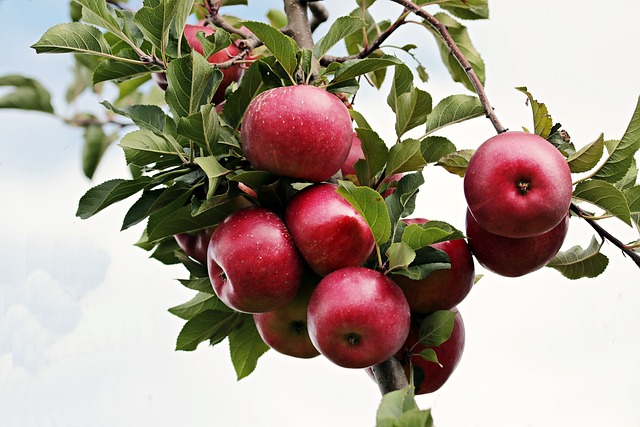We’ve all heard the saying, “an apple a day keeps the doctor away.” But recent research suggests that there might be some truth to this popular saying. A study published in the journal Nutrients has found that polyphenol-enriched apples could alter immune cell gene expression and fecal microbiota composition, which could have significant health benefits.
The Benefits of Polyphenol-Enriched Apples
Polyphenols are natural compounds found in fruits and vegetables that have been shown to have a wide range of health benefits, including antioxidant, anti-inflammatory, and anti-cancer properties. Apples, especially red apples, are a rich source of polyphenols, particularly flavonoids.
The study examined the effects of consuming polyphenol-enriched apples on immune cell gene expression and fecal microbiota composition in a group of healthy adults. The results showed that consuming these apples led to significant changes in gene expression in immune cells and alterations in the composition of the gut microbiota. These changes could potentially have a positive impact on overall health and disease prevention.
Immune Cell Gene Expression
Gene expression is the process by which genetic information is used to produce proteins that play a vital role in the body’s immune response. Immune cell gene expression refers to the specific proteins produced by immune cells to fight off infections, inflammation, and other threats to the body’s health.
The study found that consuming polyphenol-enriched apples led to changes in the expression of several immune cell genes. These changes were associated with a decrease in inflammation and an increase in the body’s ability to fight off infections. The immune system is crucial in protecting the body against illness, and by altering immune cell gene expression, consuming polyphenol-enriched apples can help promote a healthy immune response.
Polyphenols and Gut Microbiota
The gut microbiota is a collection of microorganisms that live in the digestive tract and play a crucial role in maintaining overall health. A healthy gut microbiota is essential for proper digestion, nutrient absorption, and the prevention of various diseases.
Polyphenols, such as flavonoids found in apples, can have a positive impact on the gut microbiota. The study found that consuming polyphenol-enriched apples led to alterations in the composition of the gut microbiota, including an increase in beneficial bacteria and a decrease in harmful bacteria. These changes can help promote a healthy gut microbiota, reduce inflammation, and prevent chronic diseases such as obesity, diabetes, and inflammatory bowel disease.
Read about the other superfood: Walnuts
Find the Right Apples
Different varieties of apples contain varying amounts of polyphenols, but according to a study published in the Journal of Agricultural and Food Chemistry, the following apples are among the highest in polyphenols:
- Red Delicious
- Granny Smith
- Gala
- Fuji
- Rome
These varieties have been found to have higher levels of polyphenols, particularly flavonoids, than other apple varieties. However, it’s worth noting that the amount of polyphenols in apples can also be affected by factors such as growing conditions, storage, and processing. So, it’s essential to choose fresh, organic apples whenever possible to ensure maximum polyphenol content.
Other Sources of Polyphenols
While apples are a rich source of polyphenols, there are other foods and drinks that are also high in these beneficial compounds. Berries, nuts, dark chocolate, tea, coffee, and red wine are all good sources of polyphenols. By including a variety of polyphenol-rich foods in one’s diet, individuals can reap the numerous health benefits of these compounds.
Conclusion
In conclusion, consuming polyphenol-enriched apples can have significant health benefits, including alterations in immune cell gene expression and gut microbiota composition. These changes can help promote a healthy immune response and prevent chronic diseases such as obesity, diabetes, and inflammatory bowel disease. By including a variety of polyphenol-rich foods in one’s diet, individuals can improve their overall health and reduce the risk of developing chronic diseases. It is essential to consult with a healthcare professional to determine the best dietary plan for an individual’s specific needs and health condition.
Picture Credit: PixaBay.com


Leave a Reply